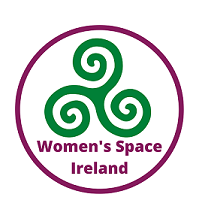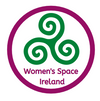Today is the International Day for the Elimination of Violence against Women. This is the day we remember the far too many women who are subjected to violence and murdered at the hands of men in a male dominated world.
It's hardly surprising therefore why women and girls are currently provided with an exemption under our equality legislation from having to be with men where we are particularly vulnerable and require privacy e.g. in toilets or changing rooms.
On Tuesday FLAC, Free Legal Advice Centres, published its guidance on making a submission to the Public Consultation on the review of our equality legislation using the latest deadline date of 8th December.

However FLAC hid this reply:

Unfortunately, for those seeking guidance regarding the Government's proposal to amend the gender ground in our equality legislation, the information provided clearly demonstrates capture by gender identity ideology despite the claims on its website such as:
"FLAC believes that the law can be used to advance the public interest and achieve greater equality, especially for groups who are more marginalised and disadvantaged."
"Where it is clear that a law or legal provision is unfair, discriminatory or not reflective of social realities, FLAC campaigns to bring about legal change that will benefit the public interest."
The social reality is that because of our biology, our vulnerability at the hands of male violence and our need for privacy and dignity in the provision of certain services such as changing rooms and toilets women and girls have continued need of protection under our equality legislation. Women and girls belong to the sex which is disadvantaged when it comes to male violence and to mitigate against that marginalisation of our freedom requires continued protection e.g. women will not use mixed sex changing rooms if they feel fearful.
No mention is made in FLAC's guidance of the exemption under the "gender ground" which exists at present nor any arguments why this might exist and whether or not there is a continued need for it by women and girls. There is no argument adduced as to why this current legal provision is unfair or why it might be unfairly discriminatory. There is no reason given why males with a "gender identity" or who call themselves "non-binary" are in need of using women's spaces.
Under the 2000 Equal Status Act there is an exemption provided under the "gender ground" from having to treat men and women equally in certain circumstances. For example, under 5 (2) where there can be

and

The "gender ground" is clearly based on sex as it's defined in the same Act under section 3:

Why was this exemption included just over twenty years ago? Clearly the drafters knew that women and girls have a well understood and evidence based need for privacy, dignity and safety in certain circumstances. Men who claim to have a female "gender identity", which is an undefinable feeling or belief, cannot be equated with the very real need of women and girls to be safe in vulnerable situations with males. We already know that

FLAC says that

According to the Gender Recognition Act Review Group 2018
"Non-binary is an umbrella term for gender identities that fall outside the gender binary of male or female. This includes individuals whose gender identity is neither exclusively male nor female, a combination of male and female or between or beyond genders. Therefore, non-binary is a term that relates to questions of gender identity."
Those with DSDs ("intersex") have frequently asked not to be used "as a political tool". The inclusion of "intersex" immediately demonstrates that this is an ideological claim and is not evidence based.
The EU does protect against discrimination those who have undergone "gender reassignment" but this is not the same as "gender identity". In the preamble to Directive 2006/54/EC of the European Parliament it's noted that

According to the Irish Human Rights and Equality Commission (IHREC)
Transgender persons are protected under the gender ground for the purpose of equality legislation. Specifically, the gender ground means that you are entitled to equal treatment whether you are a man, woman or transgender person. (email response)
However when asked why the IHREC believes it necessary "that the equality acts should explicitly prohibit discrimination against transgender, non-binary and intersex people" when the IHREC has already said that transgender people are protected the Commission has failed to answer.
FLAC recommends that gender ground in the equality legislation should be extended to include a prohibition on discrimination based on gender identity, gender expression and sex characteristics. The European Network of Legal Experts in Gender Equality and Non-Discrimination note that there are multiple advantages to a single, “broad” gender ground (as opposed to the addition of “separate” protected grounds relating to gender identity and expression):

FLAC quotes this report:

This is an example of "forced teaming". Women, adult human females, and girls who will become women have nothing in common with men who claim to be non-binary or to have a female gender identity except for a shared humanity and a need for protection from discrimination. Promoting equality between the sexes does not necessarily mean treating both sexes exactly the same in all cases. This is why we have an exemption under the gender ground in some circumstances at present.
One of the two co-authors of this report is Dr Peter Dunne, ex board member of TENI, the Transgender Equality Network Ireland. Dr Dunne was in the headlines last year when it emerged that he was the author of a paper cited by the Scottish government:

As Scottish independent policy analysis collective Murray Blackburn Mackenzie pointed out
“The Scottish Government has chosen an academic paper that is arguing for the dismantling of sex-single protections as one of only two sources to support its claim that concerns about the impact of reform on single-sex sex services and spaces are misplaced.
Dr Dunne's report that FLAC quotes from also says that
"A legal bottleneck is generated by the question of whether, and if so to what extent, the well-being of others should be taken into account in this area. This is not an issue that is limited to single-sex facilities or trans rights, but affects many different areas, as is clear from the CJEU case law discussed above. Accepting feelings of discomfort among the dominant majority as justifications to restrict access to important areas of daily life, such as work, public toilets, sports, etc. for groups of people who are already more vulnerable and marginalised. It begs the question of who the law aims to protect (and why?) and requires policy-makers, in consultation with civil society, to look for creative, appropriate measures."
Women cannot be described as a "dominant majority" restricting access to men who are "already more vulnerable and marginalised". The exemption on the gender ground in our equality legislation is to protect females from males and it's surprising and extremely disappointing that FLAC cannot see its way to support the rights and needs of half the population.
Adding "gender identity" to the protected characteristic of gender in our equality legislation puts at risk the safeguards and protection currently afforded to women and girls on the basis of our sex.


